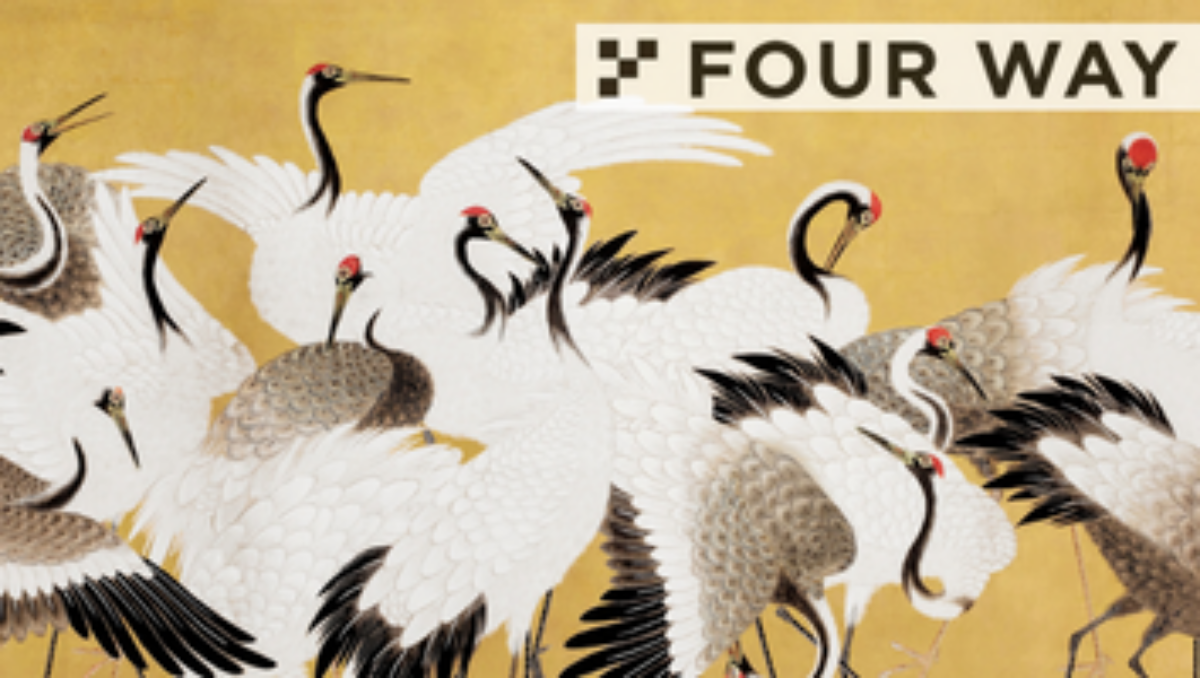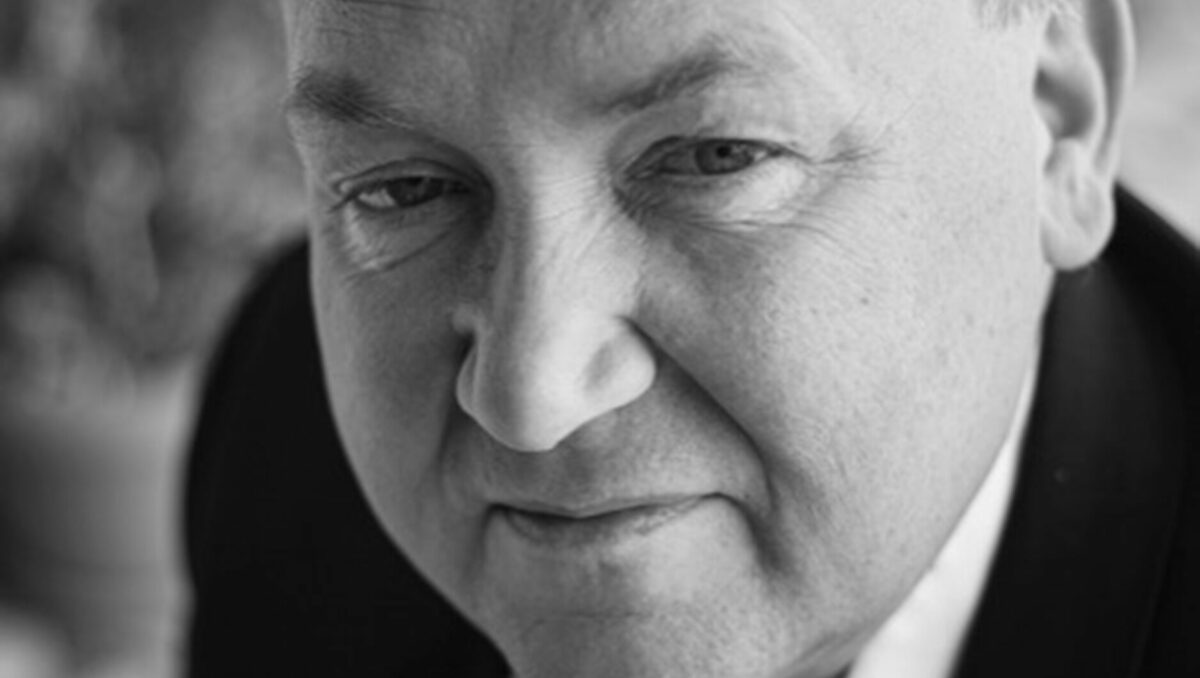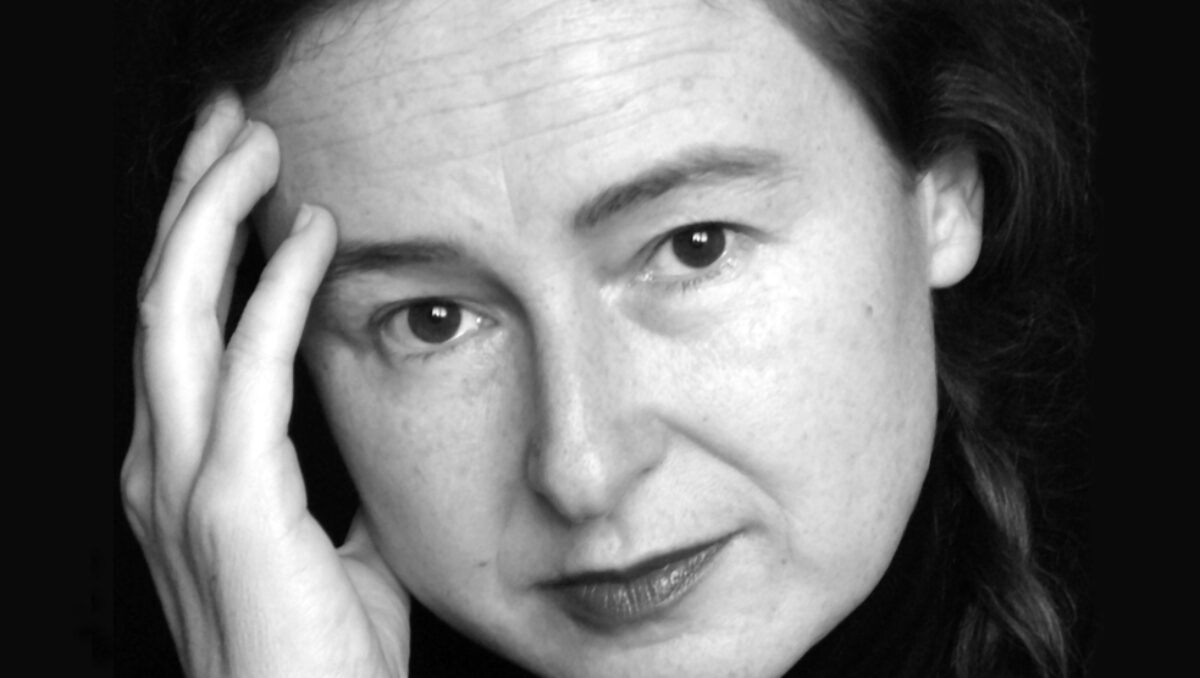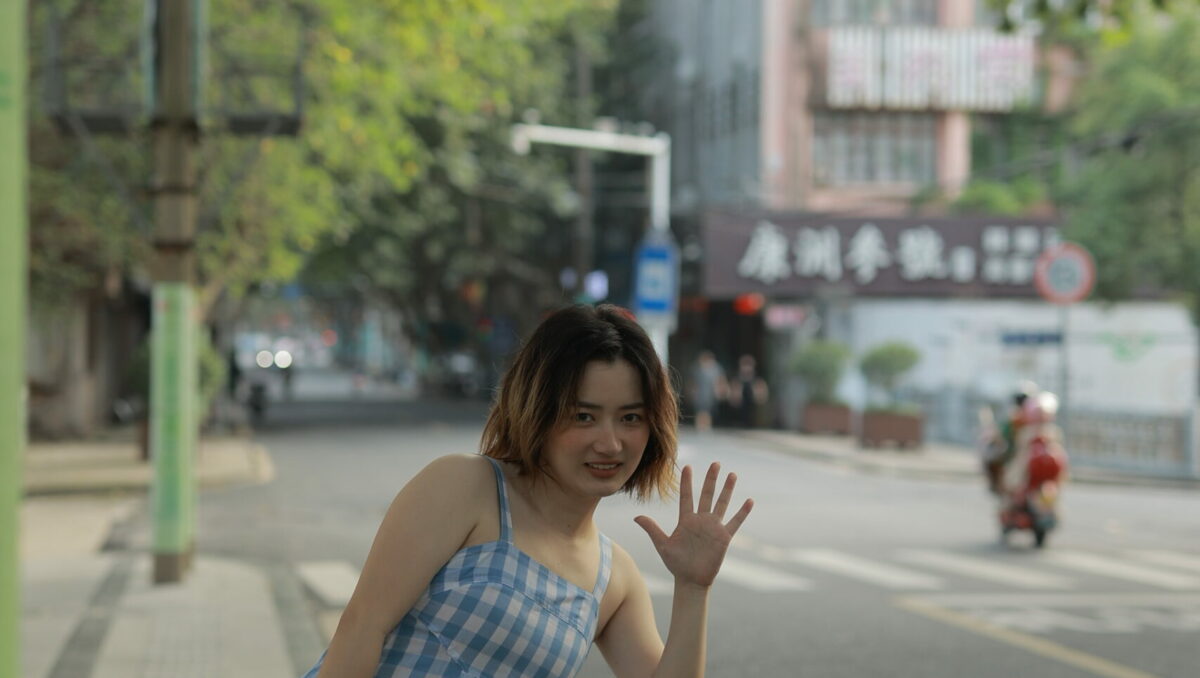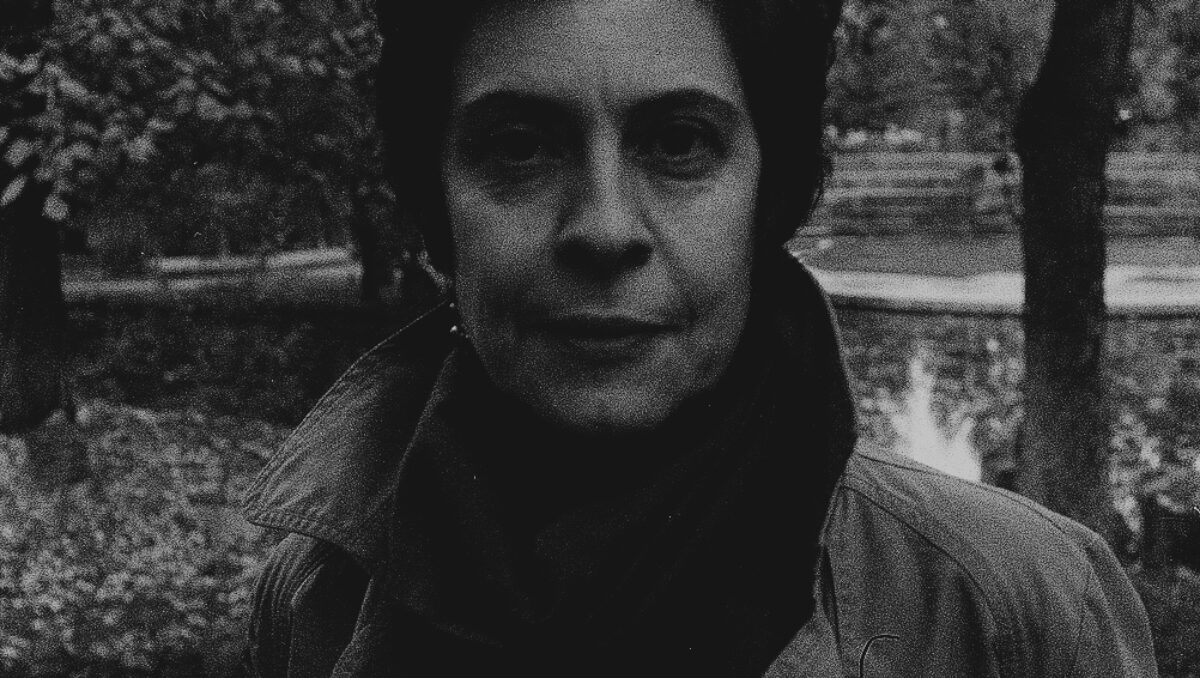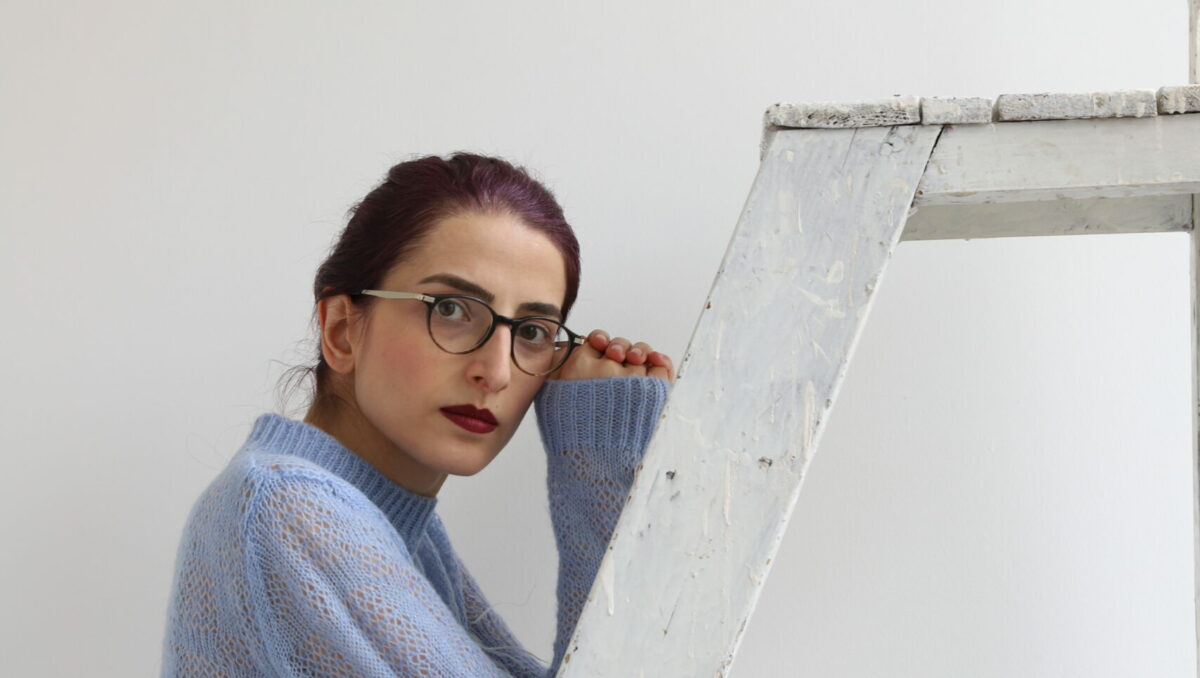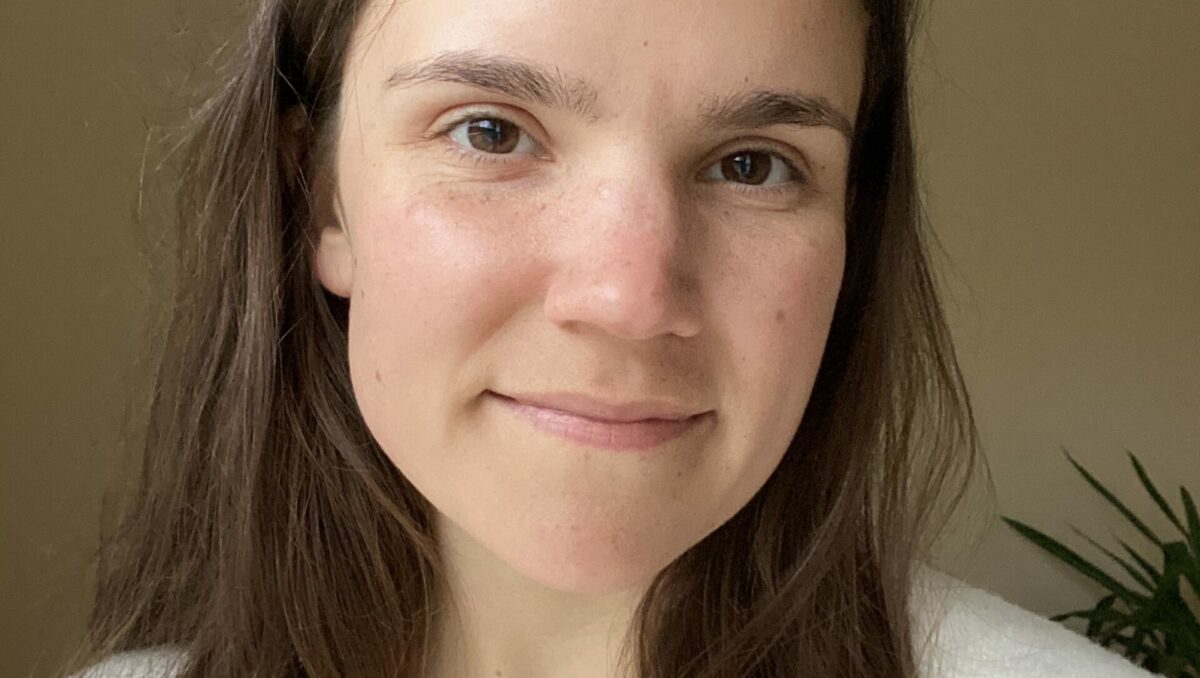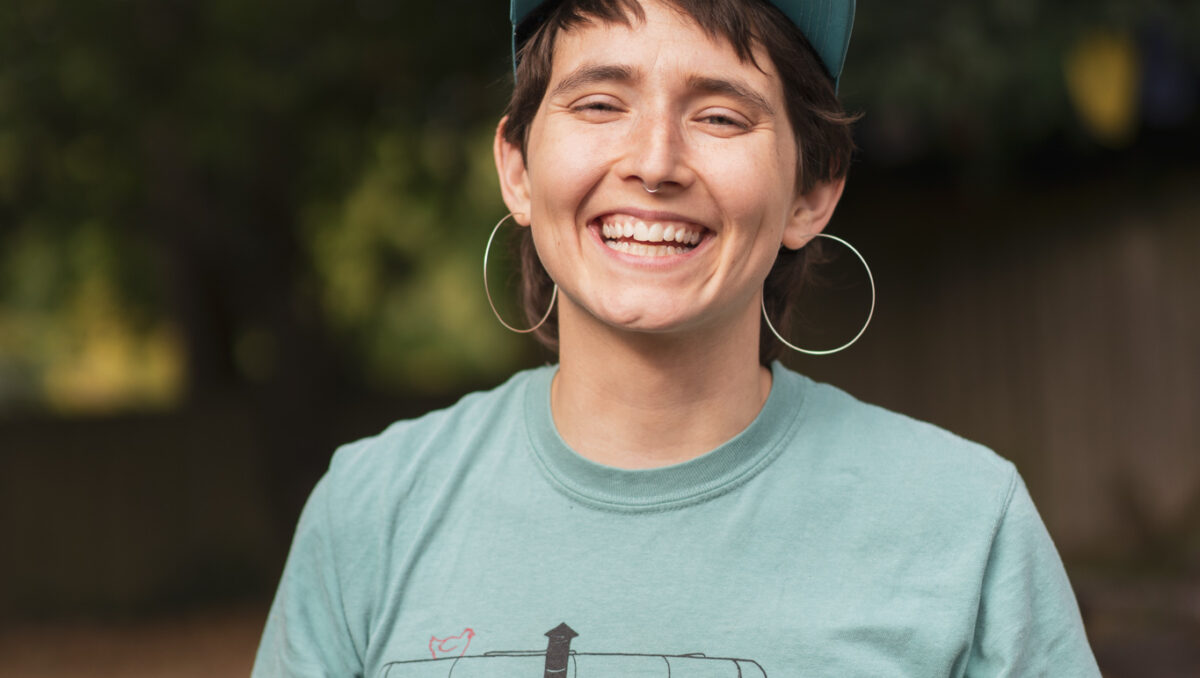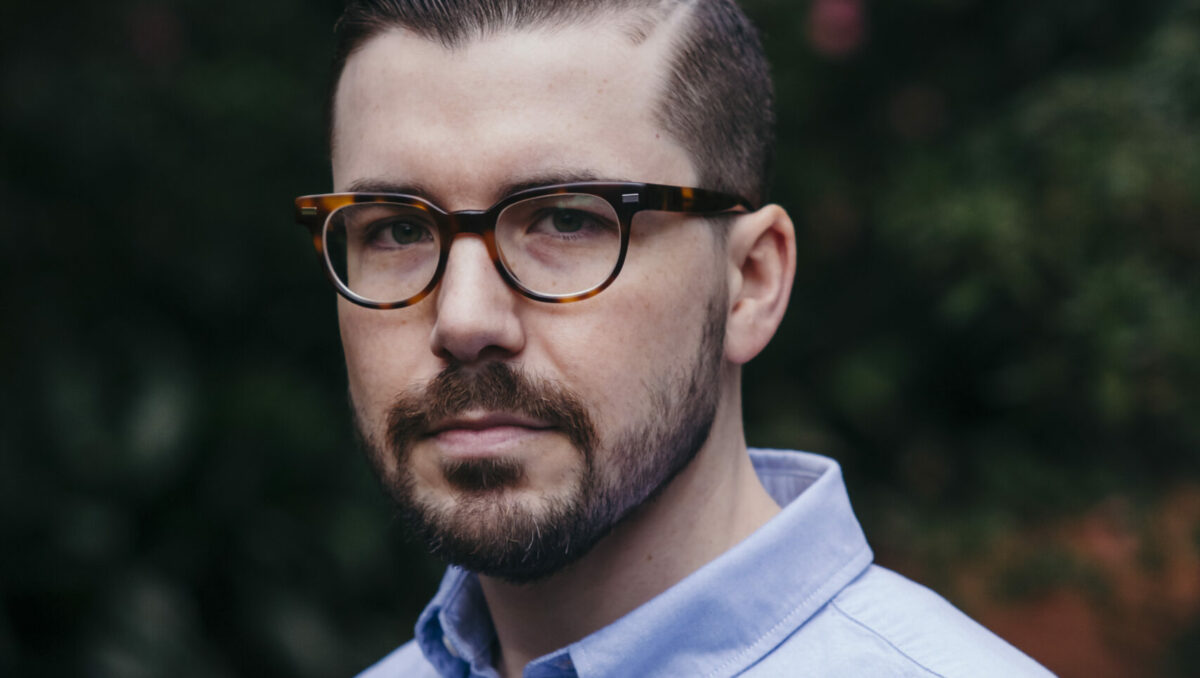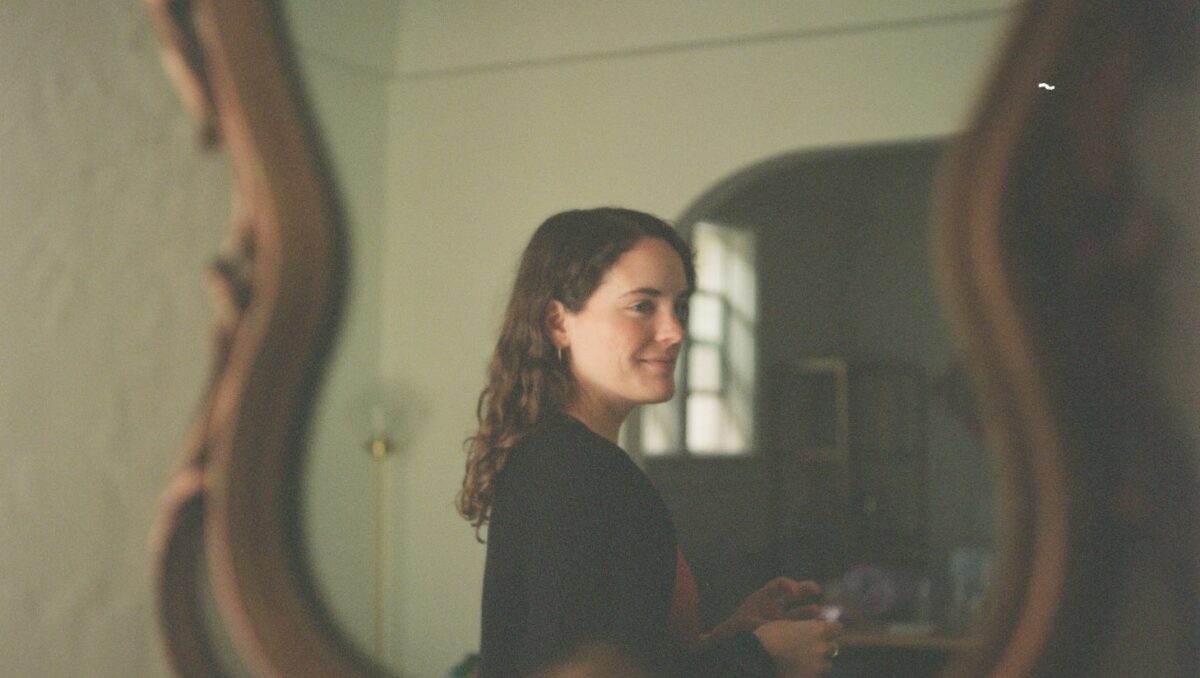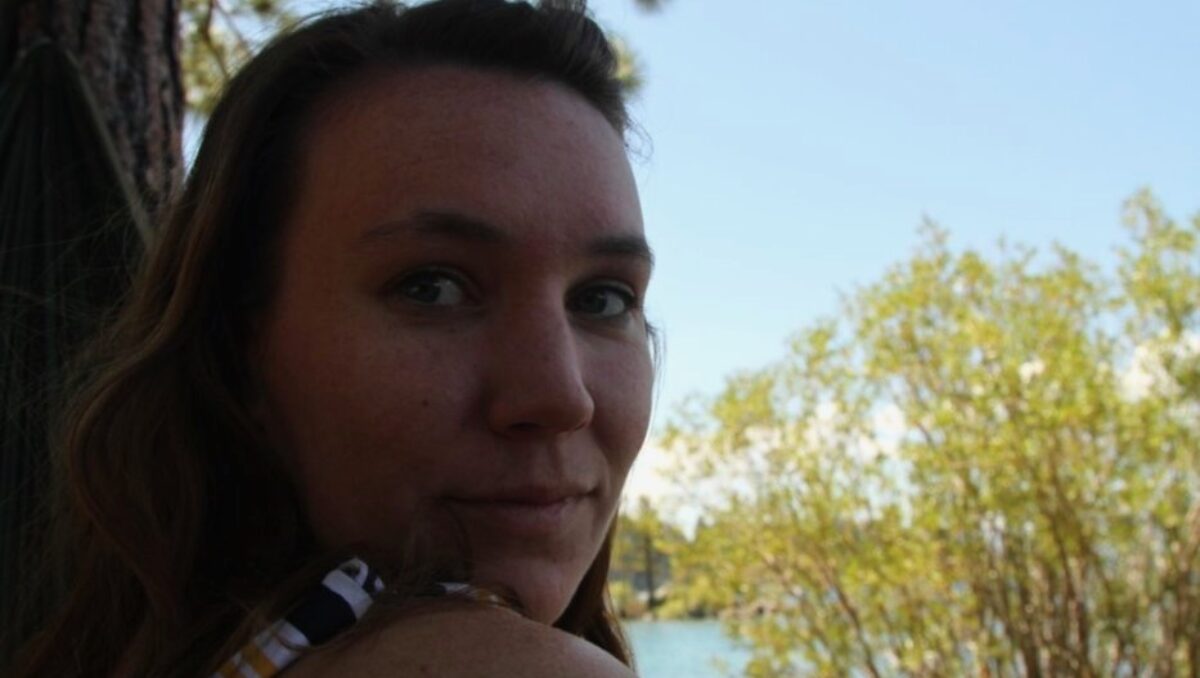ISSUE 29

POETRY
TWO POEMS by Tobi Kassim
TWO POEMS by Karin Gottshall
EXCERPTS FROM “PICTURES OF THE WEATHER” by Timothy Michalik
TRAIL GUIDE TO THE BODY (3RD EDITION) by Lenna Mendoza
TWO POEMS by Monica Cure
TWO POEMS by Kelley Beeson
STILL LIFE WITH DROUGHT, CIGARETTES, AND THE GUADALQUIVIR by Megan J. Arlett
INTAGLIO by Emma Aylor
TWO POEMS by William Fargason
FENNEL by Shelby Handler
ALL THE GOLD I HAVE IS STOLEN GOLD by Liza Hudock
FICTION
THE HUM by Andrea Jurjević
TRANSLATION
[3 UNTITLED POEMS] by Kim Simonsen, trans. Randi Ward
TWO POEMS by Dana Ranga, trans. Christina Hennemann
SPRING SLUMBER by Ma Hua, trans. Winnie Zeng
FIVE FRAGMENTS FROM “THE WOMEN OF ZARUBYAN STREET” by Shushan Avagyan (self-translated)
I AM NOT A NAME by Anna Davtyan (self-translated)
- Published in All Issues, ISSUE 29
[3 UNTITLED POEMS] by Kim Simonsen, trans. Randi Ward
In this millennium
you are like a bird that flew into a window,
a forgotten landscape,
a watch stopped on a wrist,
yellowing wallpaper.
Like the only guest
at every hotel.
If you hate yourself in this town,
you are not alone.
Summer is full
of signs without singularity.
A little spider
crawls on the wallpaper,
turns around, and hides.
From distant
mountain cliffs,
bedstraw hawk-moths.
Incorrectly
catalogued epochs.
What good does it do
to return
to this seashore?
The clear water smells
of tidal pools and tears.
The sun cleaves the water
like a diamond blade.

Randi Ward is a poet, translator, lyricist, and photographer from West Virginia. She earned her MA in Cultural Studies from the University of the Faroe Islands and has twice won the American-Scandinavian Foundation’s Nadia Christensen Prize. Her work has appeared in Asymptote, Beloit Poetry Journal, Words Without Borders, and World Literature Today; her work has also been featured on Folk Radio UK, NPR, and PBS NewsHour. She is a recipient of Shepherd University’s Appalachian Photography Award, and Cornell University Library established the Randi Ward Collection in its Division of Rare and Manuscript Collections in 2015. For more information, visit randiward.com.
Headshot credit: Perry Bennett
- Published in ISSUE 29
TWO POEMS by Dana Ranga, trans. Christina Hennemann
Anatomy
Body
tribe made of organs
loads of lifework-tools
the cutters are the philosophers of the soma
they only worship the one
Anadyomene
appearing Aphrodite
unanswered love, they look her in the mouth
my woe is my jewellery
my promise
the anatomists stroke her
arms and hands
thigh and foot
they feel and tap
look her between fingers
and toes and count anomalies
malformed sounds
ancestry is checked
and accent, the symmetry
of an anaphase
when the cell divides
and the nucleus beams: a double star.
Volatility is chided
this part does not match the other
it burns and pulls
anacoluthon
they plot
crack cell-codes
experienced hackers of lust
thieves of intimacy
they seek life with the scalpel and triumph
at every exam
and still know nothing about themselves
about beauty and love
structure assists function
in the body anarchy prevails
on the last day
the absence of rule between the marble tables
who sews the limbs back together
which sentence matches the other
sequences, series, passages
even Christ went on a Harrowing of Hell
anacatharsis
the hall is cleaned with ultraviolet light
the student is ashamed
the sublime and the sick too close together
but the professor says
you have passed
Spleen
The show always begins on time, the sun is shining through the fins of the roller shutter, today there are eight gaps, yesterday there were twelve and today he wants to sleep in later, but in five minutes the lions on the telly will roar, the hunted suddenly turn around and take a swing, I have to see that, cut to the applauding monkeys, then a man with a gun will come to aid and hunt the hunting, opening credits, lots of names, also for lions and chimpanzees, for parrots and tarantulas, it’s still a long way to the power switch, hundreds of shingles creaking parquet, and then I turn off the sound, to be on the safe side, so that the roaring doesn’t reach the bedroom, one can only see it then, and the rustling of the trees,
I slowly turn around, one leg is already on the edge of the bed, a lamb is waiting down below, and the blanket above me, eight kilograms of wool divided into two point five by two point five, for two people, it smells of cage and the sweat of the keepers, pets smell different, they are predictable, with tame mitochondria and transparent cell walls, bred for fidelity and submission, for procreation, giving birth, raising, slaughtering and still no peep, no oh-alas, just march to bed, eyes closed and press on, last night as well, with the hope of tomorrow and the prospect of a world in black and white, eyes closed and through the middle of the night, guzzling the night, the darkness, moving only when he moves,
waiting until he falls asleep, then slowly crawling out from under the blanket, on hands and feet around the bed, turning down the volume on his radio, mixing night into the wavelengths, muting the chirp of space, with a canon, inhale-exhale, women’s voices and men’s voices and always the same, at this time it’s always war, always uprising and rebellion and punishment with death, turn the volume down, then switch off, wait, until the click drowns in his cough, and then back, the same way, on the same parquet shingles, the solid and quiet ones, now it’s quiet, like in space, when all the life-sustaining devices fail at the failure of the power generator, and now back to the edge of the bed, hated spaceship, because I have to share it, and don’t slide in his direction, in the deep ditch where he’s sleeping and sweating and sometimes mumbles and talks, turn-the-radio-on-again, I-want-to-listen-to-the-three-o’clock-news, and falls back into the moor of dreams, radio antennas growing tall and making the darkness’s blood surge, wet pillows and rough sheets, last night prisoners were exchanged, with hissing and humming, it was too warm under the blanket, but it happened fast, in strictest secrecy, it’s peeping and whistling, the lamb on the edge of the bed lifts its head and searches in vain for its mother’s teats, then it sinks into the hay and sleeps, quick on a sleep-journey, riding brain waves,
there is a lot of green in black and white, happiness is brushing against the edge of the jungle and kills a gazelle, flesh and blood live and die at the same time, painless cut, cut to the next scene, everything is for the good in life, even the cage bars, because one can shake them, screeching, howling, the smile of the captured chimpanzees is a grimace, who is mirroring whom here, nothing is primitive, everything is as it is, legitimate, not legitimate, like the faces of the hunters in the makeup room, before shooting begins, the chimpanzee knows what a cage is, when she frees the parrots, a huge strike, little head and wings, freedom and the great guzzling are awaiting you, being eaten mostly, don’t-be-afraid and so-what, that’s life, God only gives what one can carry, the cage is small because one seemingly doesn’t need that much, of space and freedom, the thoughts are content with just their own mind,
how many years have to pass until the roller shutter crumbles into dust, it is more powerful than light, and only when he says, now-you-can-get-up, does the night come to an end, and he speaks again, stay-put, I-want-to-sleep-in, don’t-make-a-noise, he rules day and night and three quarters of the bed surface,
I flee to my quarter at the edge of the bed and sleep without a pillow, it’s lying between us, my right foot is already out, the left follows and then a slight rotation of the axis to the right, until the big toe touches the lambskin, the springs remain silent, no quick movements and oh, were I amongst my own kind, in the black-and-white-forest, in the good-and-evil-world, in the world-of-justice, where the script presents death and every knuckle and cartilage of a striped, dotted, rainbow-colored enemy, and I rise up, towards the light, spread my wings, float over the parquet and touch down quietly, at the door, open and close it behind me, and then only the switching on, Sundays, always at ten past nine —
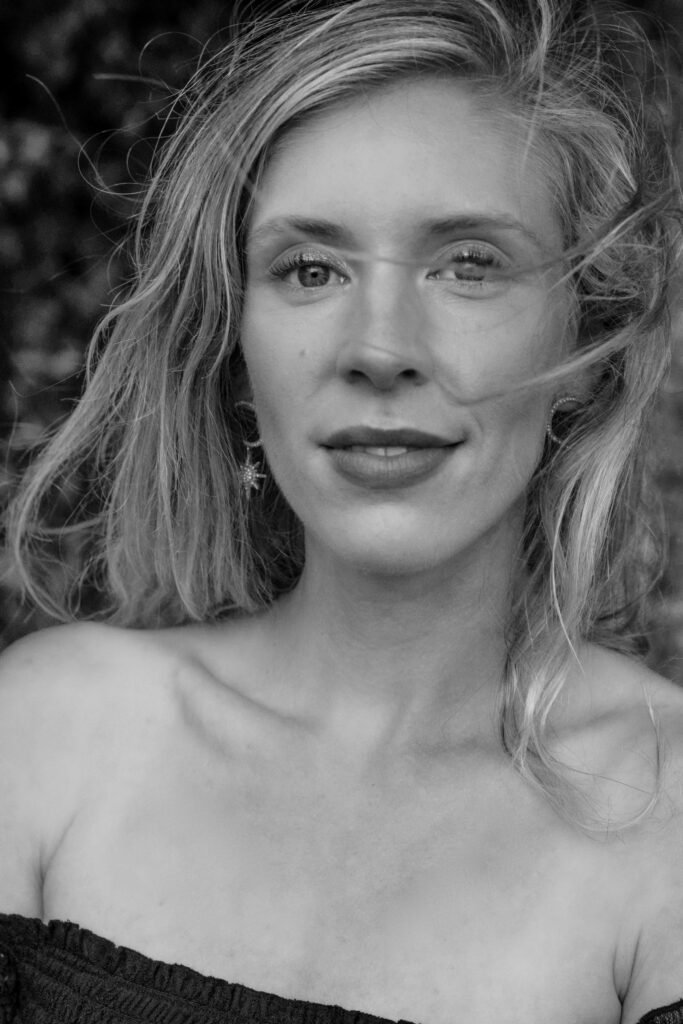
Christina Hennemann is a poet, writer and translator based in Ireland. She’s the author of the poetry chapbooks “Illuminations at Nightfall” (Sunday Mornings at the River, 2022) and “Witch / Womb” (BookHub Publishing, 2024). She’s a recipient of the Irish Arts Council’s Agility Award and the winner of the Luain Press Prize. She was commended in the Stephen Spender Prize, shortlisted in the Anthology Poetry Award and longlisted in the National Poetry Competition. Her work appears in Poetry Ireland, Poetry Wales, Anthropocene, Moria, Fieldnotes, Two Lines Press, and elsewhere. www.christinahennemann.com
- Published in ISSUE 29
SPRING SLUMBER by Ma Hua, trans. Winnie Zeng
At night, this year’s snow melts into a spring, knocks at the wooden door.
Pi li pa la, a sound more wearing than the clamor of cattle and horses
during the day. I dream that the tattered wooden door
turns out to be myself, knocked round and round
by transparent snow, by the crescent moon.
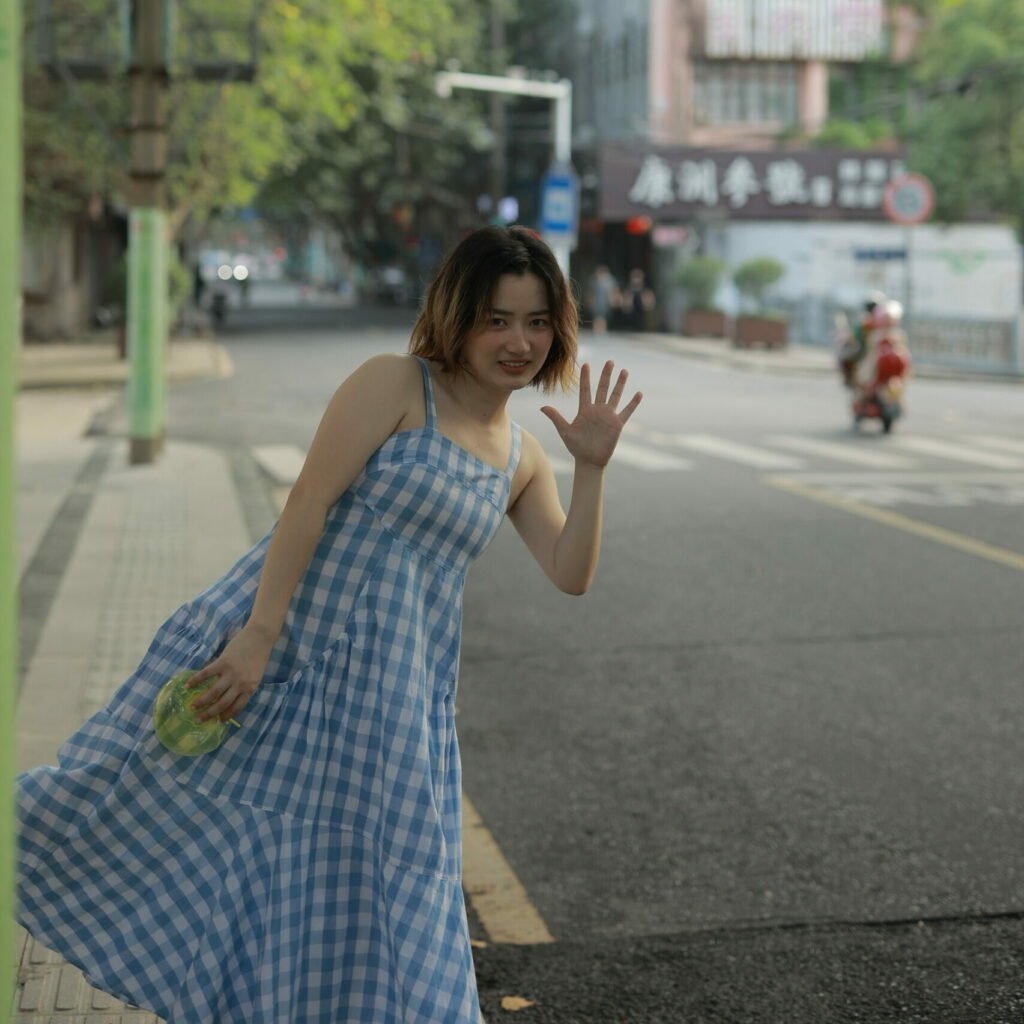
Winnie Zeng writes and translates from Zhejiang, China. Her translation of Ma Yan’s poetry has been a finalist for the Anne Frydman Translation Prize and shortlisted for the Gabo Prize in Literary Translation. Other poetry and translation can be found in Poetry Northwest, the Offing, Black Warrior Review, and elsewhere.
- Published in ISSUE 29
FIVE FRAGMENTS FROM “THE WOMEN OF ZARUBYAN STREET” by Shushan Avagyan (self-translated)
1.
The Disappearing Disappeared Language that You Must Find Again
(and at once the apparently familiar is perceived as the unrecognized, allowing for this sudden removal of things to glide past you)
2.
And “Now” Will No Longer Signal the 1990s
(if one has the opportunity to closely examine the ceasefire at the point where one and the others are simultaneously formed)
3.
It Turns Out the Meaning of the Work Was Other than the Intended
(how else should one react to being born a woman, if not by abducting the future?)
4.
Perversions Nonetheless
(I am half, one should think, when I am certain)
5.
A Stalinka with a Balcony
(but who could have imagined language alone is not enough to imagine Yerevan more than “more time”)
- Published in ISSUE 29
I AM NOT A NAME by Anna Davtyan (self-translated)
Originally published in the bilingual collection Book of Gratitude (Aktual Arvest, 2012).
I am not a name,
I busied myself building other things,
which I found necessary,
and highways rose inside me,
narrow footpaths bridged a thousand roads,
and I built cozy houses for those,
who know the true order of things,
those
who know shame,
those solitary cloud-watchers,
whose names are in the mountains,
and whose hands are hard from the willing-work
of making the world—
seawalls and bridges over the sea,
admiration for its dwellers and its strength,
and approval.
I placed expanses in me, since I had seen much
and guessed also,
and they are flowery fields of mine now.
Cities crossed each other in me,
there whirled the traffic and the wind,
and I built their urban doubt,
but I discovered.
Both watermills and windmills—
battle and silence,
only joy now—
for what two particles remain built together with
is not emptiness,
but, like clouds, a new world of objects.
- Published in ISSUE 29
THE HUM by Andrea Jurjević
Hand rapping the dashboard Morse-code style, you approach the intersection of yet another dust-caked town where the red lights seem to always flash. The cigarette wedged between your index and middle finger ashes across your shirt sleeve, your pale thumb bending so far back it looks like a U-turn. Against the black fingerless glove, the curve of your thumb seems even more exaggerated, almost alarming. You scan the crossing and proceed right through. I tune into the drum of rain on the car roof. With Macon behind us, home is just a dreary hour and a half away.
“Don’t you know I can’t be around people who drink?” you say, over-enunciating each word.
“No one was drinking, baby,” I respond. “People had a beer while waiting for a table, that’s all,” I add in my best conciliatory voice.
“You don’t get it, Mirela. I almost died a million times!”
“I was just talking to friends I haven’t seen in ages. After the film screening, everyone went next door to grab a bite.” I repeat what I already told you on the way to the car. “I stood there with no drink,” I lie, “and had a quick chat with Misty while they waited for a table. It was a big day for her. And you went out to smoke, anyway.”
“Yes! And I waited for forty minutes! Forty fucking minutes!” you go on, progressively louder.
“Oh, c’mon, Eric. Is that such a big deal? We never go out anyway.” My voice swerves, and I hate it for that.
“You don’t understand what I went through. You just don’t get what hitting rock bottom is like, do you?” You look at me coldly, the corner of your mouth pulled up and back.
“Right,” I snap. “I don’t know squat about life and struggle.” I turn away from you and look out the window. It’s getting dark. In the failing light, the trees lining the road are a procession of shrouded, mournful widows. “Turn on the headlights,” I say to you, and the next moment the car is swiping down the wet road like a thief with a flashlight.
“I suffered in order to stay alive,” you go on, increasingly impatient. “I was at the bottom of the pit, Mirela, crushed with pain! Do you have any idea what I had to live through, the hospitals, the psychological abyss, weeks spent in blackouts, how hard it was to quit? Do you fucking get it, Mirela?” you ask, slamming the steering wheel, ashes falling down your knees. “You have to understand something.” You point your finger at me. “I have far too much damn gratitude for being here with eyes clear and heart still beating to let—”
Unimpressed, I tuck my hands under my armpits. I try not to pay attention to you and concentrate on the hum of the rain filling the car.
“You know what,” you interrupt the pause. “Never fucking mind. I’m done. I am done with this bullshit!”
“What in particular are you done with, Eric? Me talking to people?”
“Fuck this, I’m calling Scott.” You light another cigarette and call your sponsor, but the call goes straight to voicemail. “I’m starved. And now everything’s closed in these shithole towns.”
“The pub was open,” I say, and mutter to myself, “but that was too much human interaction for you.”
“What was that?”
“Nothing.”
“I need to get cigarettes. I’ll stop at a gas station, and I’ll pick up a frozen pizza.”
“Let’s stop in a grocery store when we get back to the city and pick up salad greens, some Manchego, smoked salmon, and fresh bread and make a nice dinner.”
Steering wheel between your knees, you throw your hands into the air, cigarette ashes now falling across your jacket. “Why do you always have to be so high maintenance?”
“Me high maintenance? I work seven days a week running the community music school, raise my children, do all the cooking and house chores, while you sleep in and go to your meetings. And I am high maintenance?”
When I hear myself fight in English, my voice sounds backless, the words as if they’d been trapped too long in my gut, cold and lifeless like sea cucumbers.
“Oh, so you’re not happy,” you say. “Get off your high horse, Mirela! You knew who I was when we met, so stop telling me how to live. And for the last time—I am working on my memoir! I’ve got a hell of a book in me.”
“You just love stewing in your own funk.”
“Bullshit. I’ve done more work on myself than you can ever imagine!” You turn on the radio.
A loud jingle comes through. “Serving the body of Christ! Join us for the worship every morning and evening. We meet—” Your curved thumb frantically taps on the search button when another voice slips into the car. “Your favorite Georgia country station brings Morgan Wallen and ‘Whiskey Glasses.’”
“Goddamn South!” You stick your hand into the console and pull out a System of a Down CD. A gallop of distorted guitar and dense bass surges from the speakers. A moment later you turn the music off. The sound of the rain fills the car yet again and drowns your words into an incomprehensible mutter.
We are still over an hour away from the city. My hands feel dry as dust. My entire body is uncomfortably confined. I fumble through my purse and pull out a tube of lotion. I rub my hands with the slippery cream, as if reviving a dead heart. I thumb my left palm, then the right one, roll each finger. I take the lip balm from my pocket, spread it across my lips, then break off the top and massage it into my cuticles. The car is a trapped cloud of cigarette smoke and rain hum, and the seat belt is cutting into my abdomen. I undo a couple buttons on my blouse and pull up my sleeves. I drink icy water from the bottle in the cupholder. I pour that water on my palm, rub it into the back of my neck, inside my blouse, and lean my head against the window. I can hear you complain, but I’m concentrating on the rain. Your voice sounds distant, muffled, as if I’m swimming underwater and you’re on the shore, wildly gesticulating and yelling something at me.
My phone lights up from my lap. It’s Misty.
Where are you, girl?? We got a table in the back room. The big corner booth.
For a simmering minute all I want is to dip—swing the car door open, release myself, be gone. To dart like a deer, weightless among the dark trunks of birch and ash, run soundless over the wet detritus. To slink among hazy shadows. Instead, I turn the phone off without responding and slide it into the purse laying slack on the ground next to my feet. I close my eyes and think of my old home on the island of Rab, how quickly weather would sometimes change. One moment I’d be looking at the sea, still as oil, and the next a big black cloud would roll in, a strong wind would manifest out of thin air, and the sea would become a big screaming mouth, all spit, foam, and piercing rage. I’d be running around, pulling the kids’ toys into the house, ripping laundry off the clothesline, closing the shutters on the windows so they wouldn’t get ripped off the house. My skirt would balloon and lift past my waist; my hair waved up like a flame. The island would’ve sailed away in that weather if it just had a rudder.
That old house with its square face has been closed for years, its breath musty, the attic still holding newspapers from decades ago, never-used handmade bedding dowery, my grandparents’ glass bedpan caked with dust. I think back to my kids when they were little, how much they loved swimming in the narrow inlet down the road when we’d visit. Luka would doggy-paddle ahead of me, the sea washing his face as if in ablution, and Lola would ride on my back, gripping my neck tight. Luka would kick his feet furiously, wiping away everything in his path, unafraid of the depth underneath his body. The sea always sparkled like wine, and I can still smell the pine trees lining the shore. The cypress, too. And the rosemary.
When I was a girl, I used to pick currants by the retaining wall with Nona, my fingers stained with the red tangy juice. Except for the short, pure chirp of crickets, we worked in silence. The berries would be sticky with spider webs and insects, and I was frightened of snakes, especially the slender black whip snakes. Sometimes when they would slither out of the invisible tunnels below the dry dirt, Nona would greet them with the sharp edge of her hoe. Even after their bodies would be cut in two, the sliced remains continued to slither and thrash about, and their heads, decapitated, would go on hissing.
Oh, Eric, you make me long for the place I left.
Your face is pinched and flushed now, the purple vein on your pale temple bulging. “It’s been twelve years, long before I knew you,” you’re screaming, “over four thousand days of waking up without a hangover, and you do not understand,” you say—though I do, buddy, I do.
For the two years we’ve been living together, I’ve been bottling and arranging my feelings as if they were items in an old-school apothecary: herbal brandy, bitter teas, tinctures of wild oregano, restharrow root, black horehound crushed in the belly of the mortar, dark tonics of resentment. Remedies for bad docking.
***
After I met you, Misty asked one question after another: “But why pick an alcoholic?” (He is sober.) “Does he have a job?” (He will.) “Are you going to need to support him?” (Possibly.) “What is it, your heart telling you that this is it again?” (He’s a real deal. He drives all night from Philly to see me.) She was silent for a long time. “How is he with the kids?” (He plays Fortnite with Luka. He gave Lola a nice beaded bracelet for her birthday.) “Mirela, put yourself and your children first, not some man you don’t know.” I didn’t care. Misty knew nothing of aloneness in a foreign country. About the dark waters brimming underneath the surface of a new love, something so amniotic I wanted to curl up and float in it.
You drive up the highway and take the next exit. A tall sign with a glowing clown-red heart juts out from the dark skyline. Love’s Travel Stops. Its reflection on the windshield flickers in rings of light. My chest feels tight, throat dry, as if I’m carrying a clod of dirt within me. Everything seems far off, like listening to an old recording of one’s own voice, a self you can barely remember. My first twenty years abroad I had been hopeful. I followed my heart, a man, to the States. I went back to school, learned the English language, started my own family. Back then, I believed wonderful things awaited me as long as I followed my conscience, did what was right. But what’s right?
You pass the long line of parked 18-wheelers, circle around the island of bright gas pumps, and park the car near the entrance of the convenience store.
“I’m getting my goddamn cigarettes and pizza,” you say, slam the car door, and disappear behind the glass entry with a flickering blue Budweiser sign.
***
“She’s a mother with two teenage children,” your mother warned you. She was phoning in from her vacation with her new friend at yet another healing center, in Maui or Machu Picchu, I forget which. “They are a family. It will be a big change for you, darling. Are you up for the challenge? The responsibility of stepparenting? You know I want what’s best for you, honey.”
You nodded, dismissing her concerns, then gave her a big cheesy grin she couldn’t see. “I love her so much,” you said. “She’s the one, Mom. We will figure it out. The kids need to see someone spoiling the shit out of their mother. And they’re good kids. We already get along.”
My heart is pounding furiously, eyes glued to the sliding glass doors. A couple of sun-burned, middle-aged blonds with claw clips in their hair pass by my side of the car on the way out of the store, laughing loudly. I can see the sickly-looking attendant working slowly behind the cash register and a long line of people that vanishes between the isles of snacks. In the side mirror I see a man with Georgia Bulldogs stickers on the windshield of his truck filling up his tank and scrolling on his phone. A blue Ford pick-up with a confederate flag license plate pulls out from the spot next to me. One moment passes, then two. Another car pulls in next to mine. A swanky black sedan. A curvy woman in a blinged velvet tracksuit opens the passenger door, letting out a blast of trap music and a bubble of weed fumes from the dark interior. The fragmented sounds and lights fuse into a bright buzz. They get louder, and I can’t tell which direction they come from. The whole world collapses into the fullness of that noise and becomes entirely real: this night, that sleepy town where Misty is toasting to her dreams coming true, her directorial debut, me in the passenger seat of my own car, the stench of your cigarettes, and beyond this gas station, the rumble of the highway traffic and the silky call of rain. My ear is attuned to it like to a distant radio station.
***
I remember Nona in the garden to the right side of our square-faced house, among chicory and chard, hoeing sharp rocks out of scorched dirt, her face shielded by the soft blue cloud of her hair. Nono was usually lost in fixing the nets, quiet as a summer afternoon. But sometimes there’d be blue skies and furious silence. You could hear it coming—the hum. At first a low-pitch rumble would raise from under his breath, or from beyond the clouds. Hmm, hmm, hmmm. Then it would grow more resonant. When Nona would hear it, she’d get nervous and promptly shush me. “Zitto, Mirela!” She’d look up at the distance and say, “There’s going to be trouble.” And in a spell, the sky would turn dark and a cold, dry wind would roll down the mountain range. Nona would nod in the direction of Nono and the clouds, and she’d say, “The whole house will need rebuilding.”
I remove my seat belt, lift my left leg over the console, then the right, and slide onto the driver seat. I pull up the lever underneath the seat and move it forward. I adjust the height, check the mirrors, turn on the engine and, without turning the lights on just yet, carefully back the car up. I drive to the right, towards the flow of traffic, the road that leads back to the freeway and to the city cloaked in the calm emerald of the night. As I pass the patch of grass with empty flower boxes and the tall Love sign, I slow down, my right hand firm on the gearstick. The sign must be at least ten meters high. At the top of it, in the pitch dark, the red heart glows like a lighthouse at night.
- Published in ISSUE 29
ALL THE GOLD I HAVE IS STOLEN GOLD by Liza Hudock
After the TV, tablet, no-name
bags, and Gigi’s sapphire ring,
I thought I was cunning
pushing cash halfway
through the paper feed
of a broken printer.
It was the last place
he would look, but he
found the money and ran off
with the printer too.
He said he was born
to find it, an octopus
who can find its way
out of a jar with the lid
screwed shut. I watch a video
of the experiment.
All amorphous color writhing,
spasmodic turning
of the lid, a burst
of tentacles, and then out dumps
the pillow of a head.
It’s like the Big Bang,
but not, because the cliché
about heroin is true; no high
is like that first galactic-skinned
expansion. He stole until
we had nothing left to pawn.
No one had to die for me
to see what was never mine.
The controller fixed its
laser on a vacant wall.
A knot of cables in the corner
charged the air.
- Published in ISSUE 29
FENNEL by Shelby Handler
Do I want to be a poet who tells you exactly why they’re sad?
Should I be someone who mixes in the cream-at-the-top of the yogurt
or someone who eats it straight
off the surface?
I wash plastic produce bags and hang their dripping membranes on a line to dry.
I have been disgusted by intimacy and I will be again.
There are days where I can only watch videos of people being touched
and the sound of their touch
touches me, ears-first.
Their scalps scritched softly beside a bulb-like microphone.
I fear that what I need will erode me.
Confession: I did not mulch the garden in September as instructed.
Now, I watch rain leech the bare soil of its nutrients and feel a grasping.
I chipped my front tooth without noticing and now I tongue
the rough edge when anxious.
I’m trying on being okay with disintegration.
I’m too sad to call back a friend who I miss so much
my heart hurts. They understand.
They text a sparkle-heart.
I heart their heart.
Neither symbol is shaped like what aches inside my chest, but rather like the leaves
of a giant fennel from antiquity.
Leaves that were plucked and mashed into contraceptives.
This was once quite commonplace.
It is difficult, being here, growing things
where so many have already been buried.
Loving my beloveds knowing none of us get to stay.
Our remedies will also ripen into symbols.
Our care is fragile and the only thing.
I place a take-out order, typing the address for a friend
nursing an unimaginable grief.
Skimming the terms and conditions for my payment, I must make the choice today:
Yes I Understand and Wish to Continue.
That splinter of my tooth will exist as long as everything else.
The garden’s minerals eke elsewhere and I am learning how to live a life
where I tend to the elsewhere.
My dog and I walk in the rain through a blackberry bramble
and she lifts her paw, asking me to pull a thorn from it.
This tenderness that I have not earned.
Could never.
She walks on without fear.
I harvested fennel once.
It no longer has leaves—instead fronds, that grazed the back of my knees.
I cut straight through
where it came from
and cradled the heavy bulb in my hands.
- Published in ISSUE 29
TWO POEMS by William Fargason
Elegy with a Treble Hook
Ten years, twenty years later, I am still
that child beneath my father’s belt
raised high in the air above his head.
Still waking up each morning to him
ripping my shirt off my back, grabbing
the weight of me from sleep. How long
will it take for my anger to fade? He wasn’t
always awful. He taught me how
to fish, how to hold with one hand
the cricket still wiggling, how to thread it
onto the hook with the other, how to cast
the line in the water’s mirrored ripple
and wait. He taught me how to wait
in that stillness for a bite, then how to set
the hook. How to reel the fish in, holding
the line tight. How if the fish had swallowed
the hook, if the barb was stuck deep inside
the throat, the fish would die. The fish
wasn’t dead yet, but would be in hours,
maybe days. How it wouldn’t be able
to hold anything but the sharpness
in its chest. How the fish wasn’t the length
of his forearm, how it was too small
to keep, to eat. He taught me how to cut
the line with his pocket knife. How the fish
would die, but he taught me how to still
kneel down and lower the fish gently back
into the water, how to release him.
Elegy for the Memory of Memory
Since all memory decays, my father
is hitting me, was hitting me, had been hitting me,
then denies it as he takes firewood
from the wood pile, tosses it in the mouth
of the stove—since even this is nothing
now but a remembrance of the flames,
I have no way to know if he ever hit me,
if the fire was ever there, his hand fading
while still mid-air—or, if he is right,
the picture frame broke not from him
hitting it against his desk, but from falling
off a bookshelf, the height of which exists
now only in my memory, the bookcase
not holding books, but decorations.
- Published in ISSUE 29
INTAGLIO by Emma Aylor
This early morning, clouds pulled under
us full of breath, in sheets,
completely inhuman, and it was early,
as I said, so the light deepened the relief
of the drifts in the unrolled bolt,
which settled like his curls, or dunes, or hummocks
of substantial ground, and though moved,
I thought continually of something else,
several proofs of which live above: of vapor
I made breath, cloth, hair, sand, earth—
this isn’t exactly failure, I’ll say,
but multiplication; the layers seemed
to add pleasure to the scene.
Start again when the plane surpasses a river
bent as so much else—I won’t, this time,
list—but not quite. What can I be,
such that, as it shakes out,
I can be like both something
and nothing else? I can feel the joint
where each metaphor fails.
Now, of course, I’m aware of you
reading, but while I thought in flight
(constructing a motivation), it was as if
someone had asked me, before, to prepare
the views for them, all through
my life. What would I say, I’d asked
myself, apparently—what is it that I’d tell you
of that cloud if you were here?
- Published in ISSUE 29
STILL LIFE WITH DROUGHT, CIGARETTES, AND THE GUADALQUIVIR by Megan J. Arlett
What to do with this obsession, sit her on the front step with us as we blow smoke into August’s heat? Loss makes a dent in the air. And I’m supposed to bear it? I can’t bear it. Taste of promise. Taste of ash and dirt. The sound a plant makes as it dies from thirst. Bubbles clicking through xylem–morse code for gasping–body turned to desert. A person is allowed to have secrets. Two hundred miles from here, the Guadalquivir quivers like she’s hiding something. Drunk men fall into her pewter arms beating the alloy around them. Vice she holds on tight, facilitating the accident no longer waiting to happen. Like all violence, there is an embrace. Like any affair, there is an ache.
- Published in ISSUE 29
- 1
- 2
